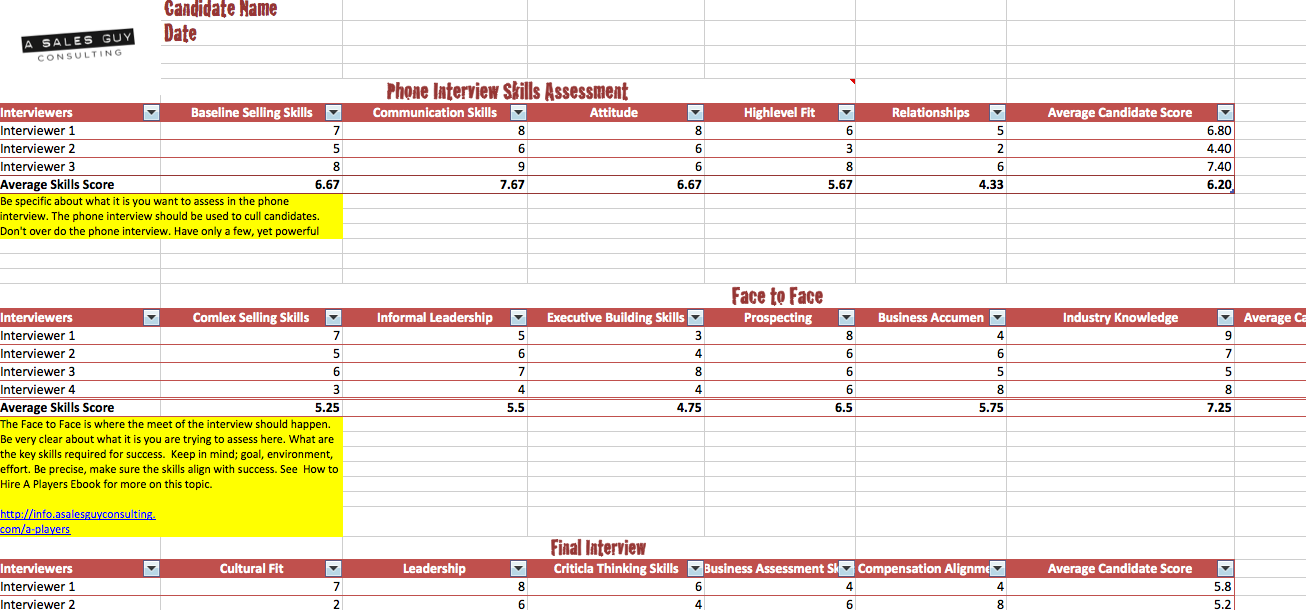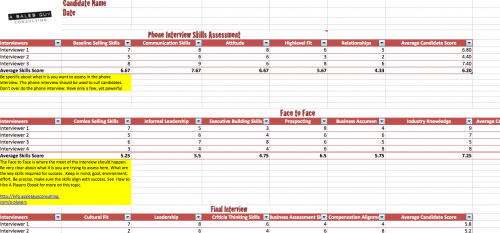We hire C players because we didn’t spot them in the interview process. We hire B players, because we believed we could get them to A players or because they were queen of the pigs.
The pressure of getting new people hired can be huge. The feeling of losing revenue daily because you’re struggling to hire a new person can be overwhelming. The need to settle for a “B” player because you’ve been unable to find an “A” player is all too common. Succumbing to these pressures, however, can lead to months if not years of problems in your sales organization.
In some cases hiring “B” players can be more costly than hiring “C” players, as they don’t crush it but do just enough to keep from getting fired. Worse, they can do greater damage; like hiring C players and driving your “A” players out. Janine over at INC Magazine wrote a great post about this the other day.
Hiring is one of the most critical elements of your job. Screwing it up can have devastating, long-lasting ramifications.
To avoid the pitfalls and to identify the best candidates requires a strong hiring process and equally important a hiring score card.
Your hiring process requires you outline the skills you are hiring for and what it’s going to take to be successful in the role. You need to know the goals of the role, the selling environment and the effort required to be successful in the role. It’s not uncommon for organizations to know what they want in a candidate and most do. Where they fall apart is in mapping the hiring process to their needs — the scorecard.
You can download the A Sales Guy Consulting Hiring Scorecard here.
A haphazard interview process leaves companies vulnerable to fast-talking “C” and “B” players who wiggle their way in to organization. Building a solid process with a clear scoring system reduces the risk of this and creates clarity around the process.
A good sales hiring process:
- Clearly identifies the specific skills required for success
- Separates each interview step and assigns goals and skills to be assessed by each
- Phone Interview
- Face to face Interview 1
- Face to Face Interview 2
- Final Interview
- Clearly outlines the goals and objectives of each interview. Each interview should be designed to accomplish it’s own unique objective
- Has a team of peers, etc. who also participate in the interview process
- Has a robust scoring system
Getting all this right and creating a solid scoring system greatly reduces the risk of hiring the wrong people. Make your hiring process systematic. Know who you are hiring and score them. Have a minimum candidate hiring score and only hire those who are over the bar.
The scorecard is critical in this process and far too often it is overlooked. Make sure you can score the candidates. Make sure a tangible, quantitative systems is put in place to check our qualitative tendencies.
When our heart is saying yes, and we don’t give our head a way to chime in, the trouble begins.
Feel free to use our hiring scorecard, it’s a pretty good one.
Do you know your minimum candidate hiring score? You should.
Download the Candidate Scorecard now.


